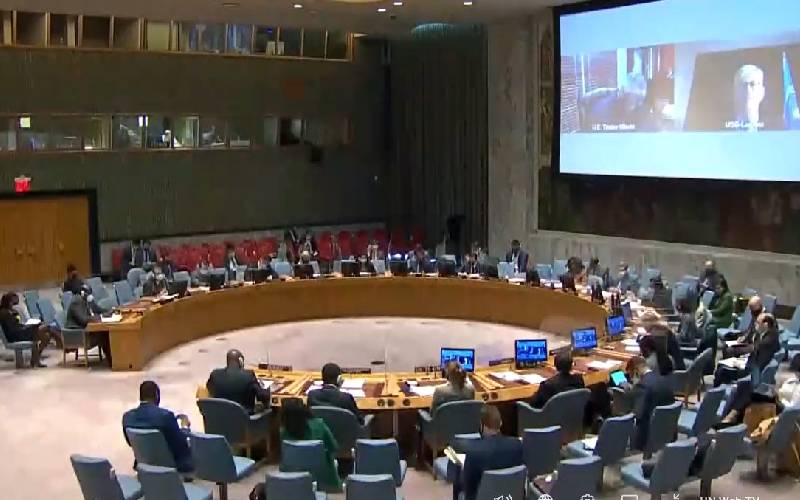×
The Standard e-Paper
Kenya’s Boldest Voice

An in-person session is in progress at the United Nations Security Council.
Kenya has concluded her Presidency of the United Nations Security Council for the month of October 2021.